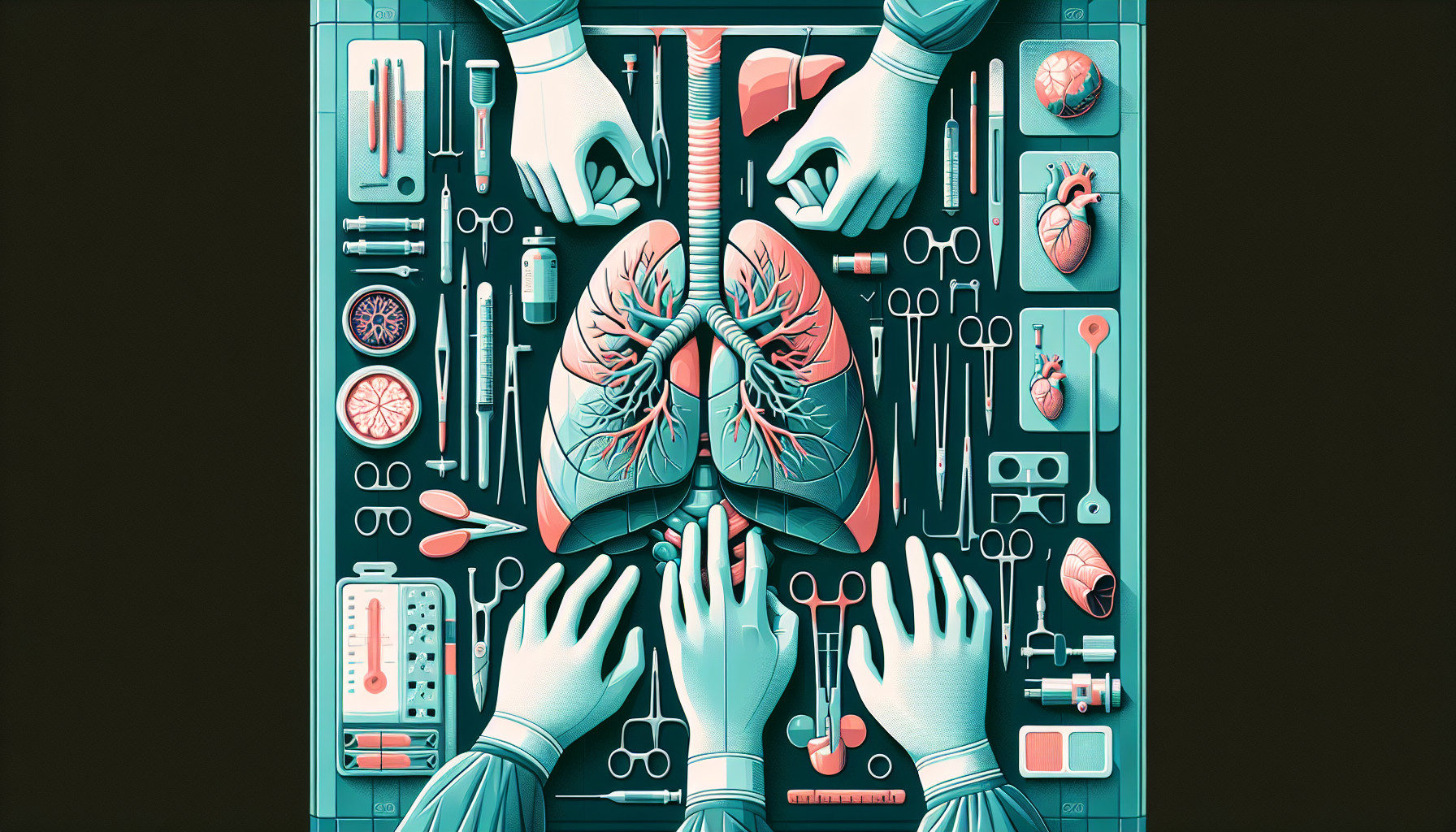Our Summary
This study evaluated the effects of a lung condition known as interstitial lung disease (ILD) on people who had undergone surgery to remove a type of lung cancer known as non-small cell lung cancer. The researchers looked at medical data from 2009 to 2019 and found that 1.5% of patients who had this surgery also had ILD. These patients were more likely to smoke, have high blood pressure in the lungs, have reduced functioning in their lungs, and have undergone more specific types of surgery compared to patients without ILD. After surgery, patients with ILD were more likely to have serious complications, including death, severe lung inflammation, and other health problems. The study concluded that having ILD makes it more risky to undergo surgery for lung cancer, even for those with normal lung function.
FAQs
- What is the link between interstitial lung disease (ILD) and non-small cell lung cancer surgery complications?
- Does having ILD increase the risk of complications after lung cancer surgery, even if the patient has normal lung function?
- What are some common health issues observed in patients with ILD who have undergone surgery for non-small cell lung cancer?
Doctor’s Tip
One helpful tip a doctor might tell a patient about lung resection is to quit smoking before the surgery and to continue to abstain from smoking afterwards. Smoking can increase the risk of complications during and after surgery, as well as slow down the healing process. By quitting smoking, the patient can improve their lung function and overall health, making the surgery safer and the recovery process smoother. Additionally, maintaining a healthy lifestyle through regular exercise and a balanced diet can also improve the outcomes of lung resection surgery.
Suitable For
Patients who are typically recommended lung resection include those with early-stage lung cancer, particularly non-small cell lung cancer, who have good overall health and lung function. However, patients with interstitial lung disease may be considered higher risk candidates for lung resection due to potential complications and poorer outcomes. Other factors that may influence the recommendation for lung resection include the size and location of the tumor, the patient’s age and overall health, and whether the cancer has spread to other parts of the body. It is important for patients to discuss the risks and benefits of lung resection with their healthcare provider to determine the best course of treatment for their individual situation.
Timeline
Before lung resection:
- Patient is diagnosed with non-small cell lung cancer and undergoes various tests to determine the stage and extent of the cancer.
- Patient may undergo chemotherapy or radiation therapy as part of the treatment plan prior to surgery.
- Patient undergoes pre-operative evaluations and consultations with the surgical team.
- Patient may undergo breathing exercises or pulmonary rehabilitation to optimize lung function before surgery.
After lung resection:
- Patient undergoes the surgical procedure to remove the affected part of the lung.
- Patient is closely monitored in the hospital for any signs of complications, such as infection or bleeding.
- Patient may receive pain management and respiratory therapy to aid in recovery.
- Patient undergoes follow-up appointments and imaging tests to monitor for any signs of cancer recurrence.
- Patient may undergo rehabilitation to regain strength and function in the lungs.
- Patient may experience ongoing symptoms such as shortness of breath or coughing, and may require ongoing monitoring and treatment for these issues.
What to Ask Your Doctor
- What is the purpose of lung resection in my case?
- What are the potential risks and complications associated with lung resection?
- How will my lung function be affected after the surgery?
- What is the expected recovery time and rehabilitation process after lung resection?
- Will I need any additional treatments or therapies after the surgery?
- How will my underlying lung condition (such as ILD) impact the surgery and recovery process?
- What are the long-term outcomes and prognosis for patients with ILD who undergo lung resection?
- Are there any alternative treatment options to consider?
- How many of these surgeries have you performed, and what is your success rate?
- Are there any lifestyle changes or precautions I should take before and after the surgery?
Reference
Authors: Axtell AL, David EA, Block MI, Parsons N, Habib R, Muniappan A. Journal: Ann Thorac Surg. 2023 Sep;116(3):533-541. doi: 10.1016/j.athoracsur.2023.04.042. Epub 2023 Jun 2. PMID: 37271447
